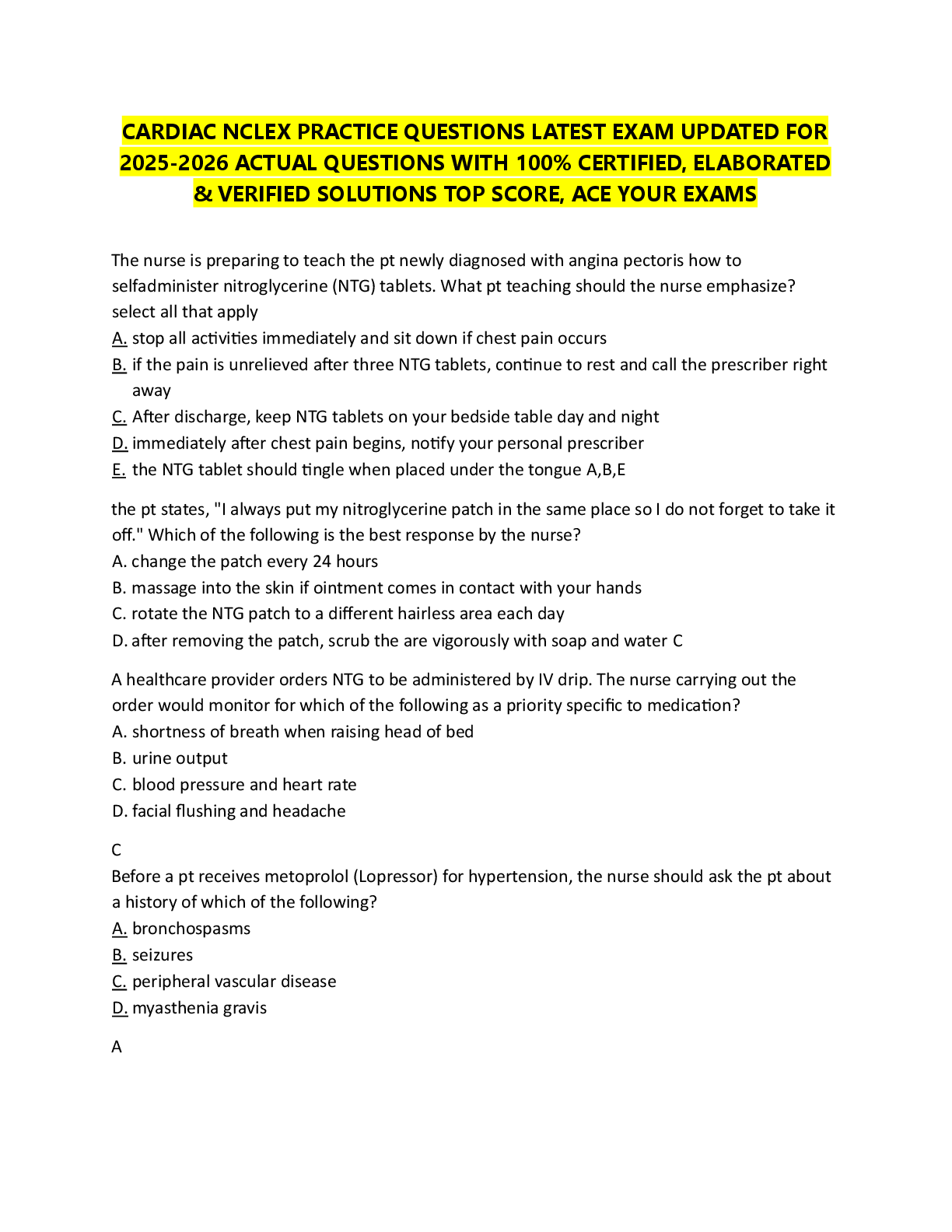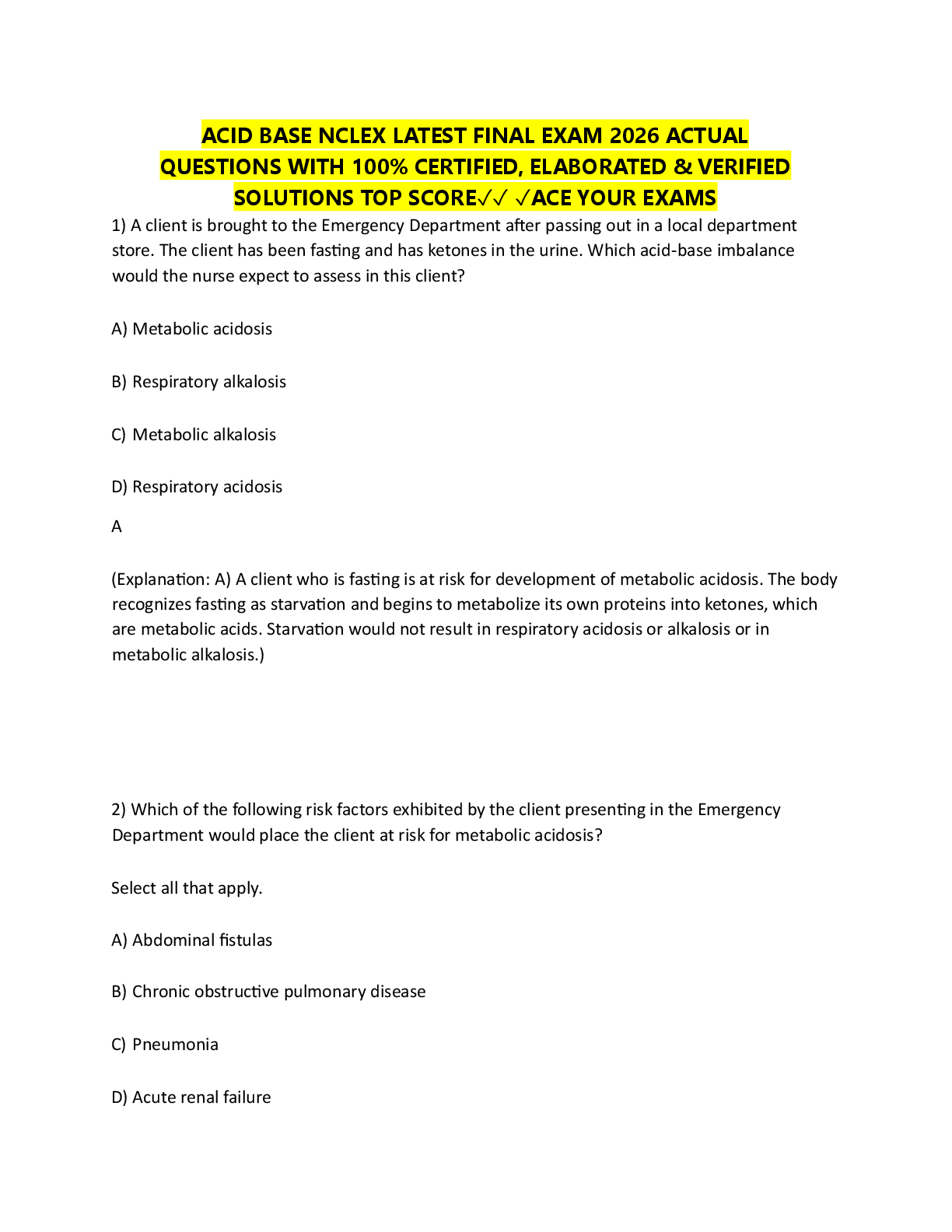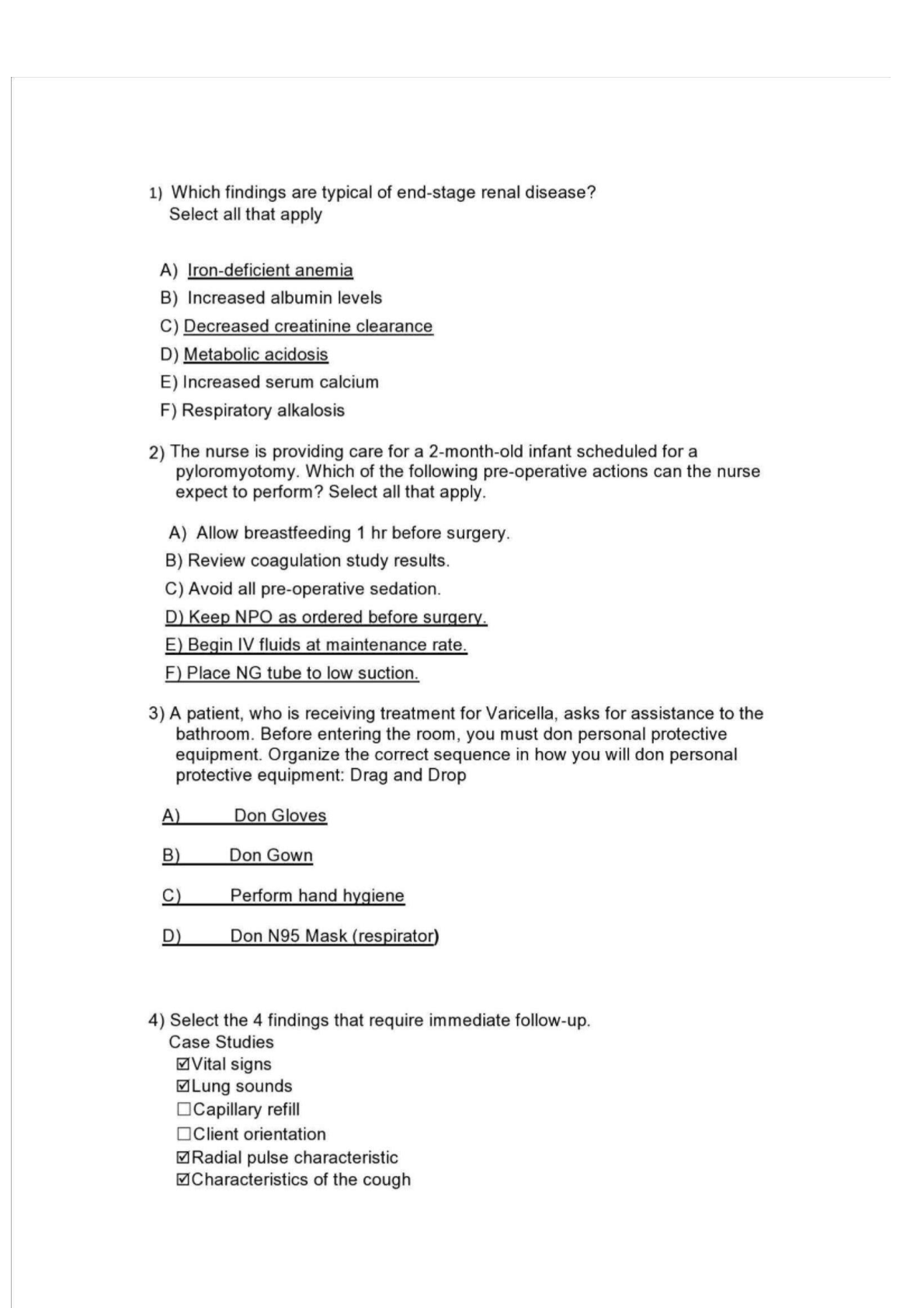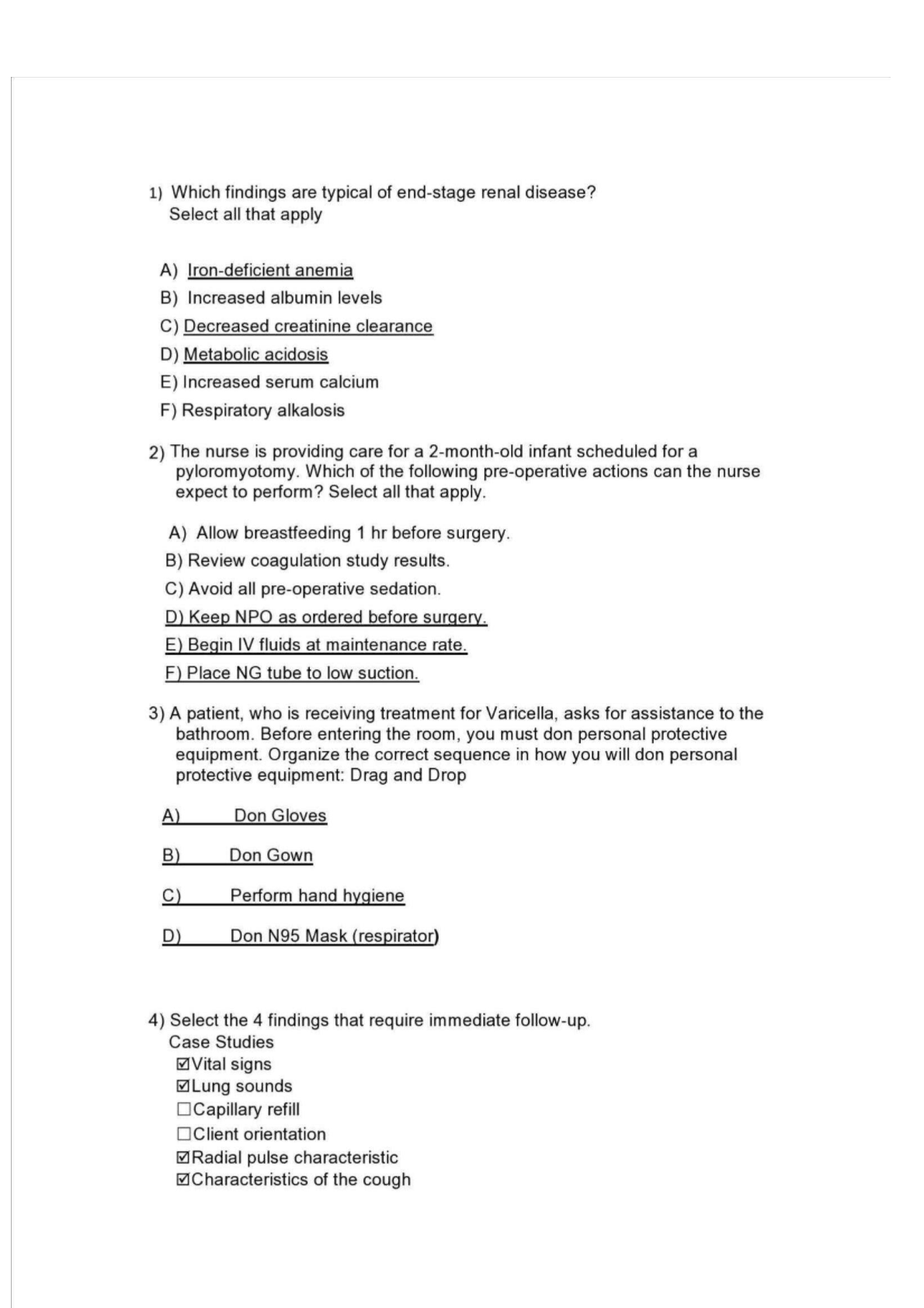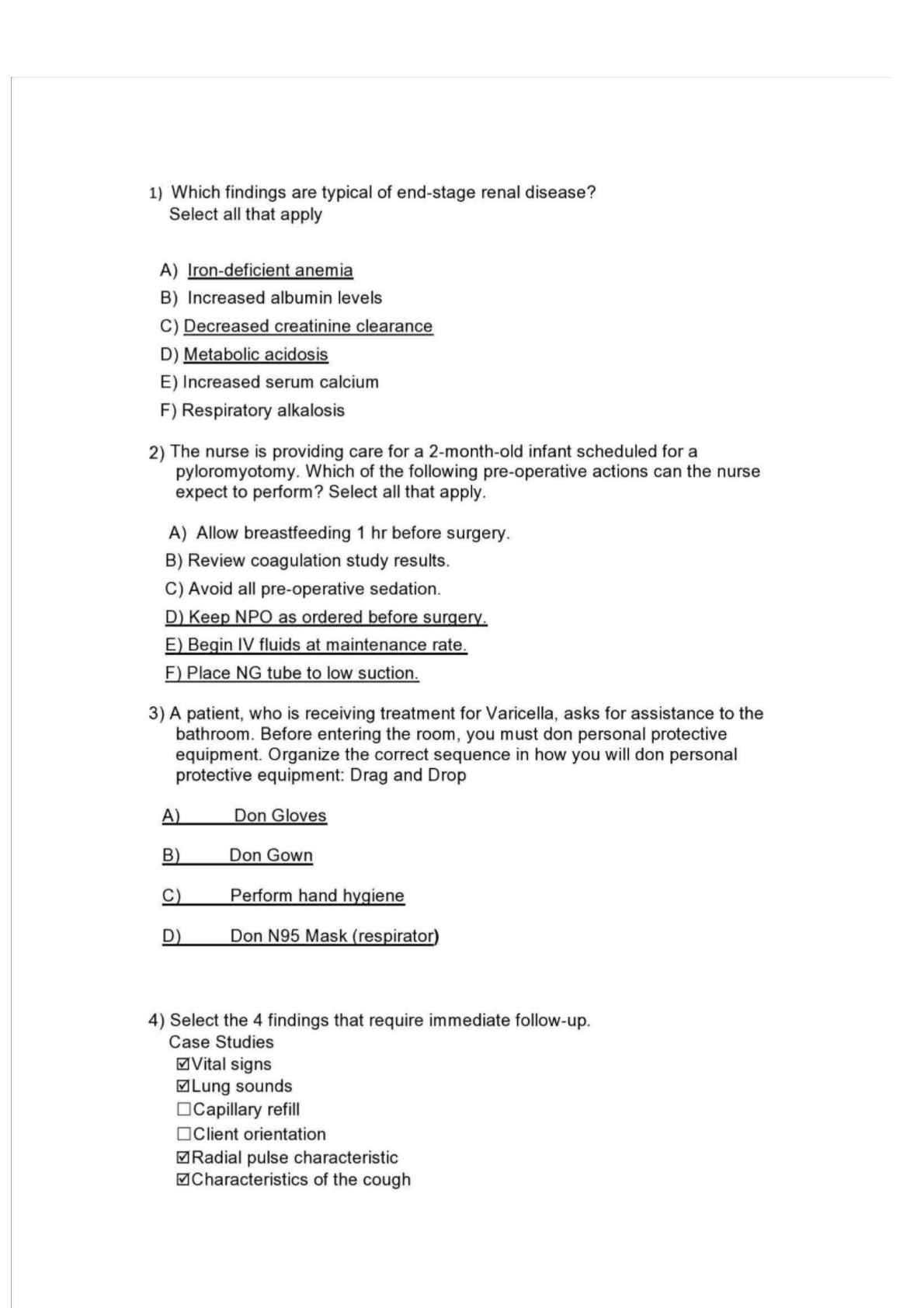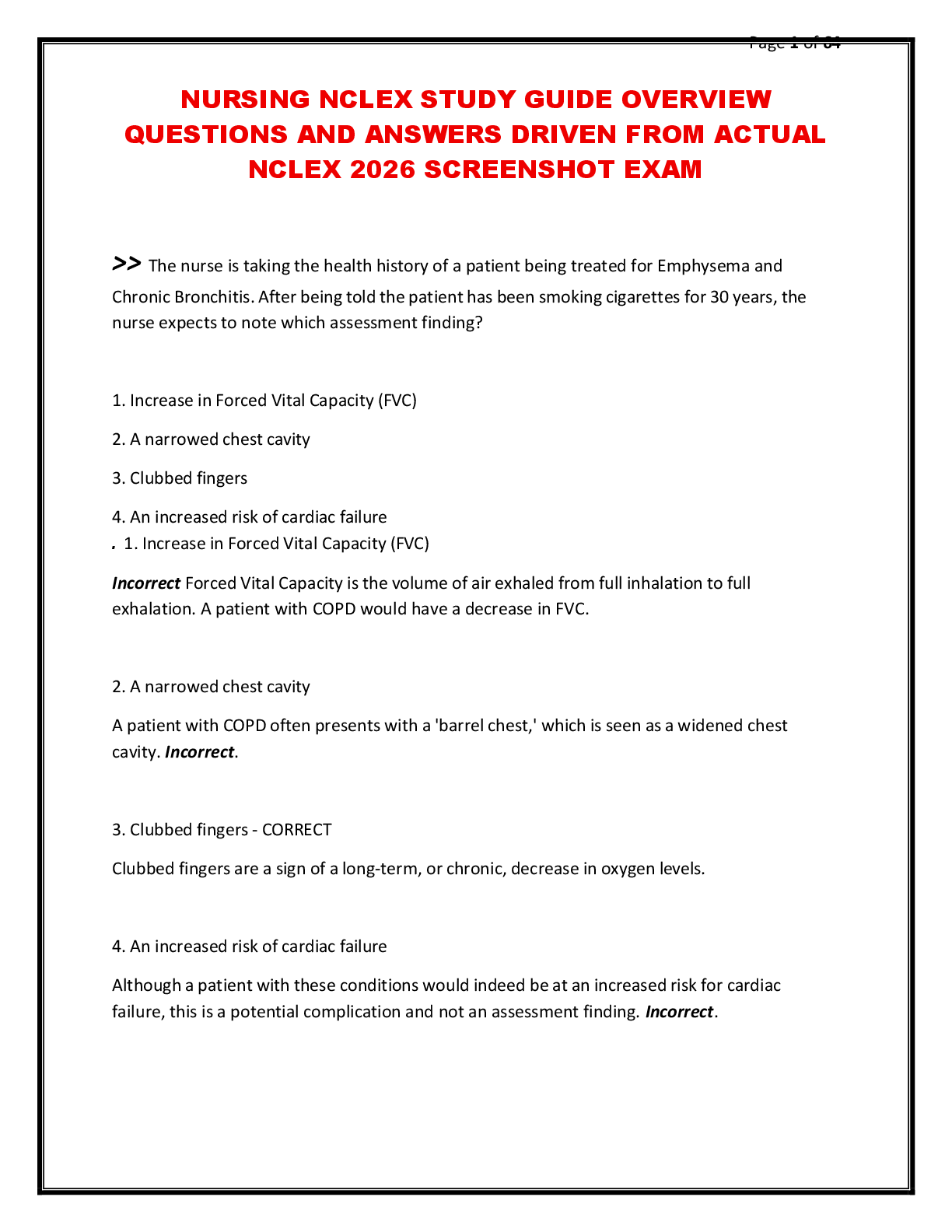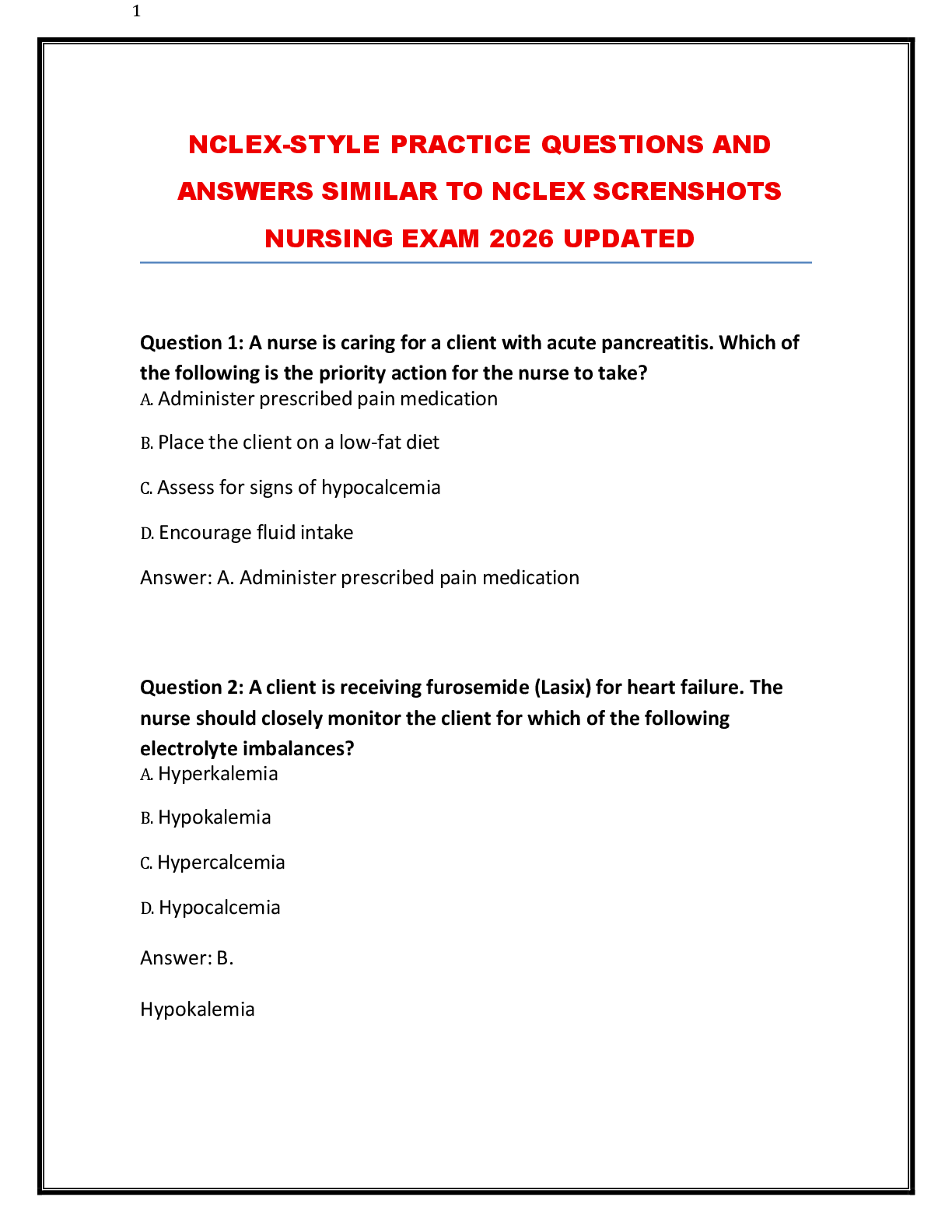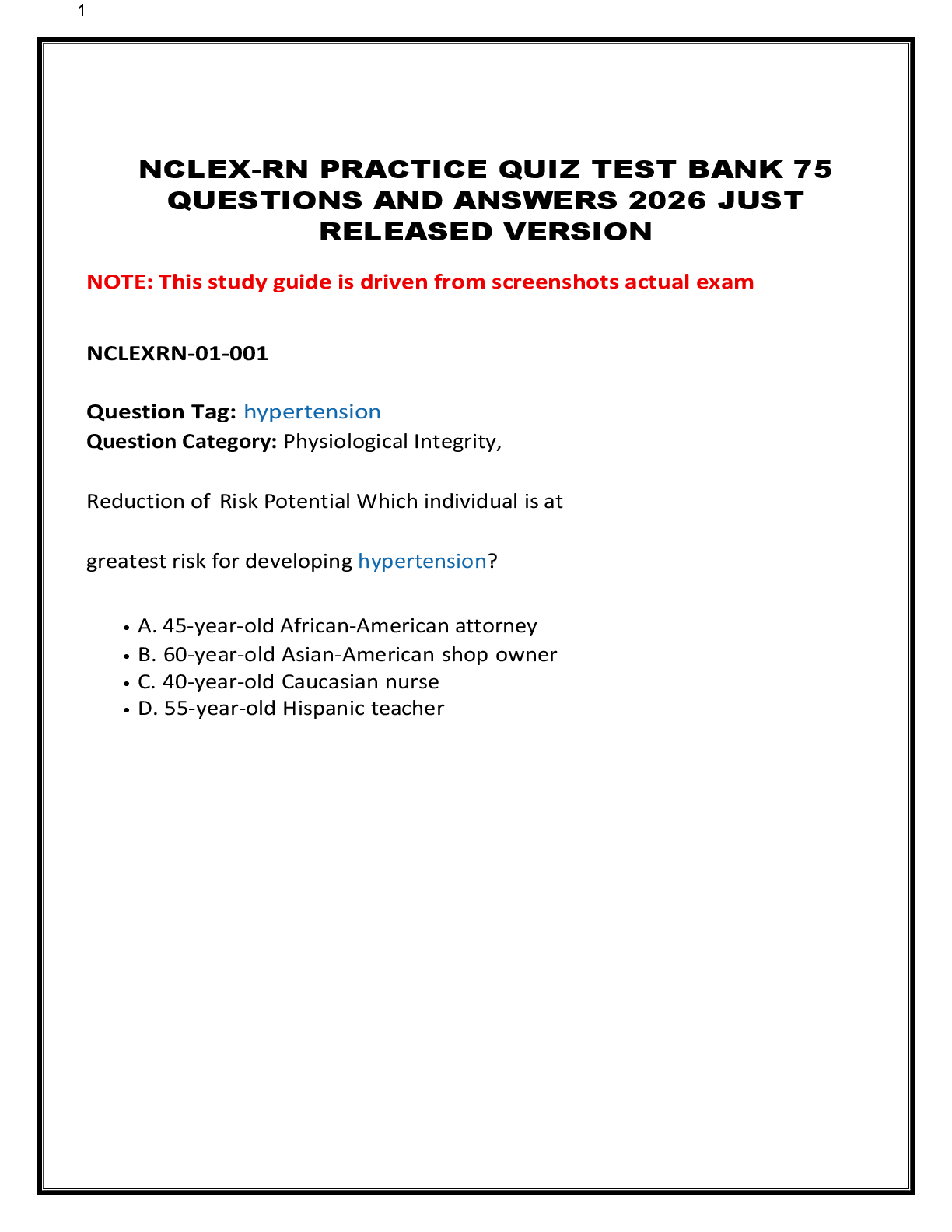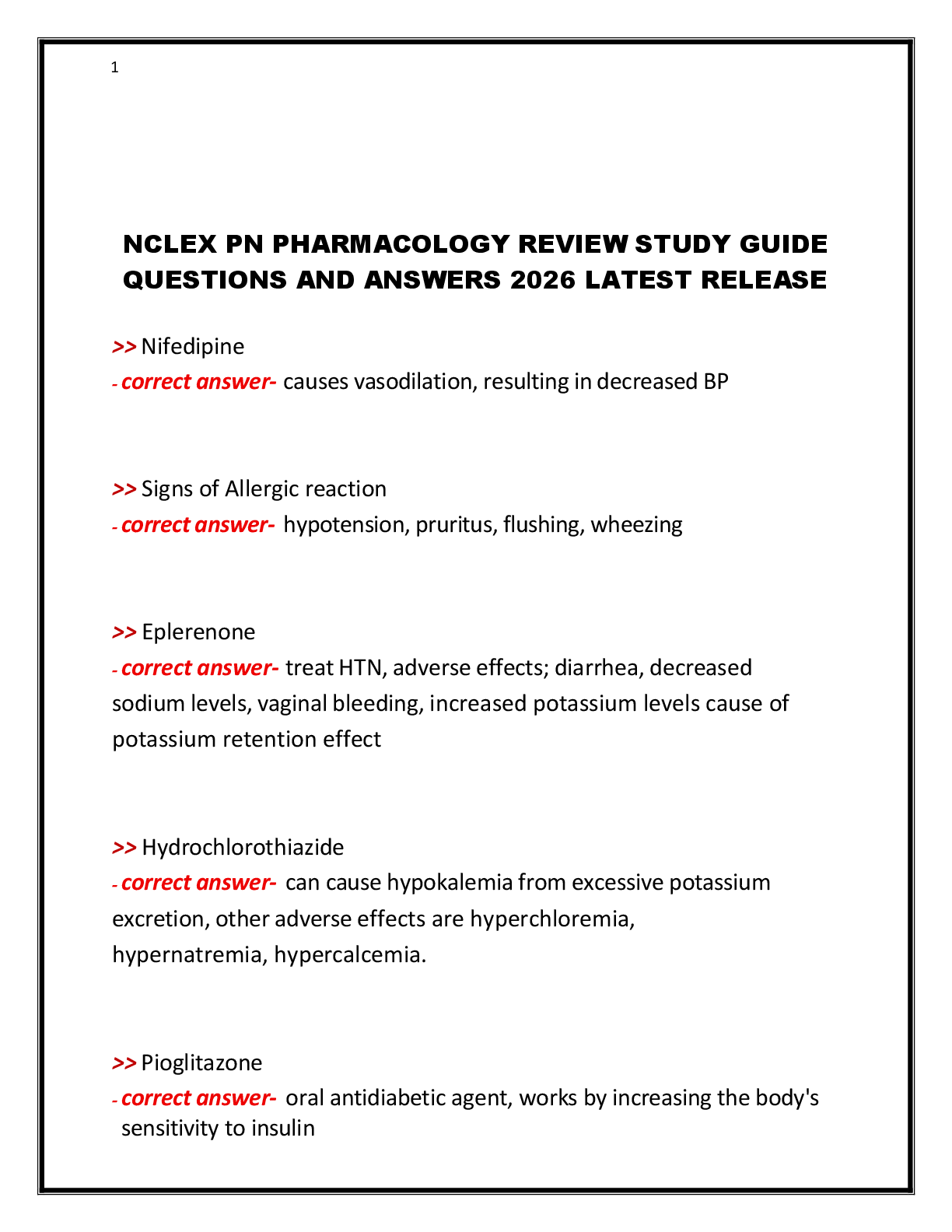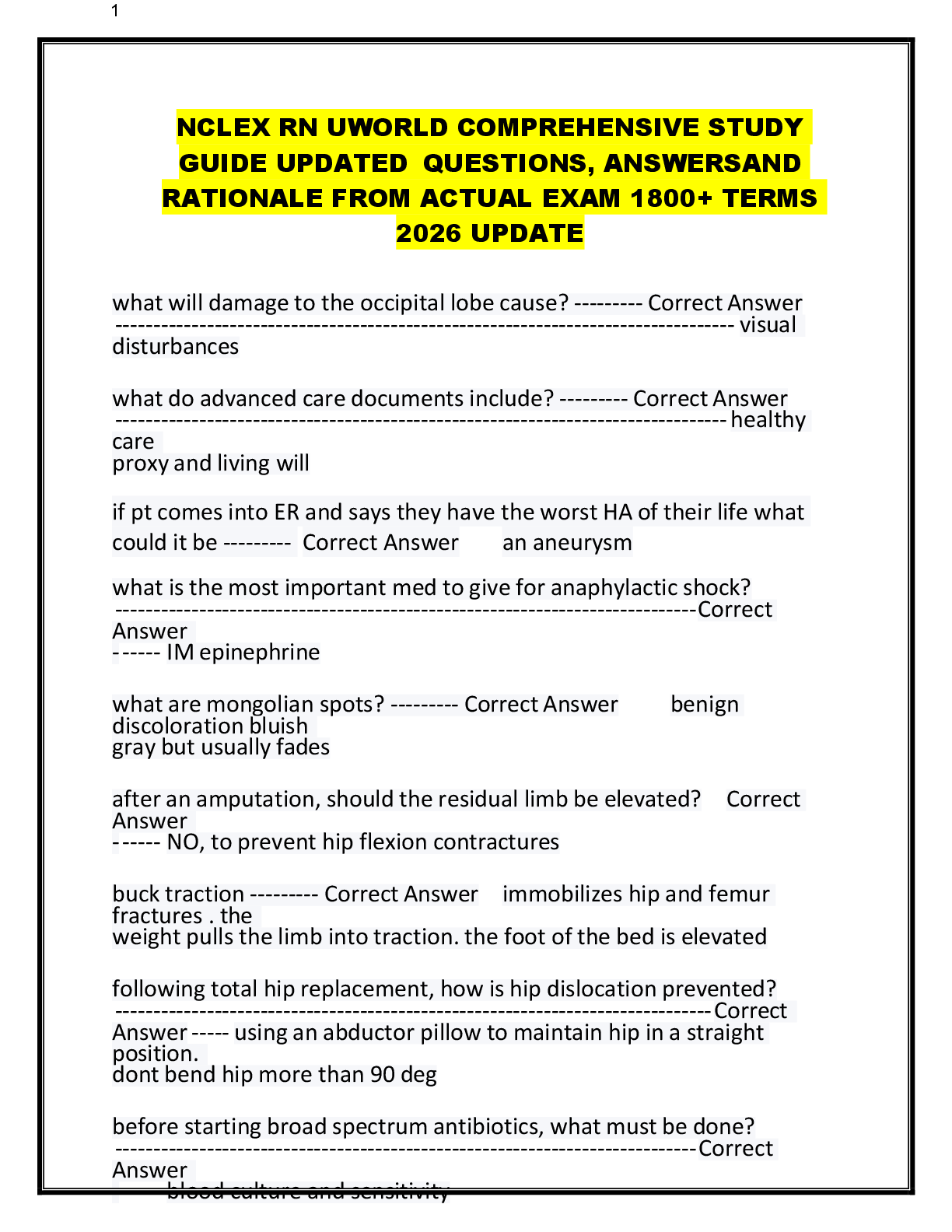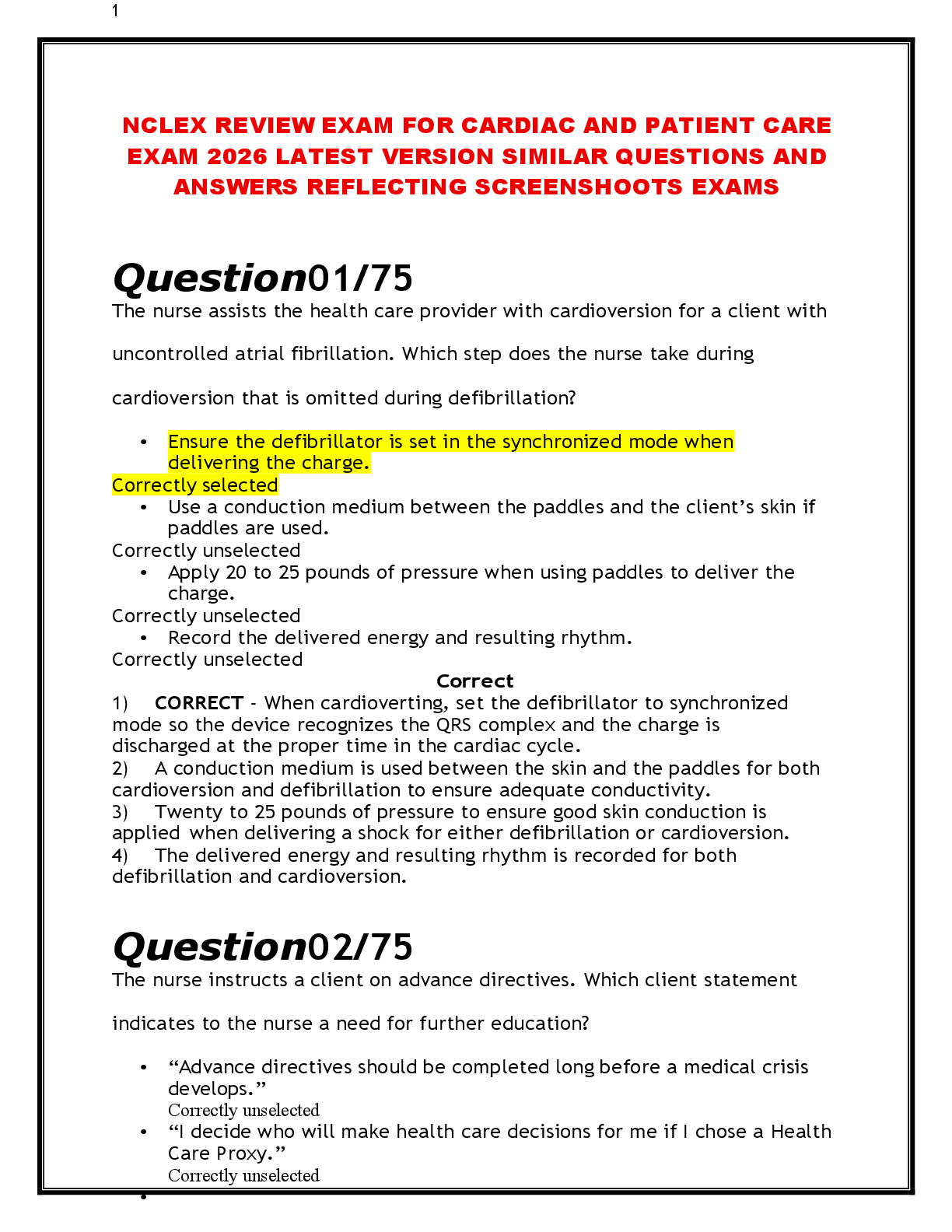OB NCLEX Qs Intrapartum Exam Solution
2022/2023
When caring for a client in the first stage of labor, the nurse documents cervical dilation
of 9 cm and intense contractions lasting 45 to 60 seconds and occurring abo
...
OB NCLEX Qs Intrapartum Exam Solution
2022/2023
When caring for a client in the first stage of labor, the nurse documents cervical dilation
of 9 cm and intense contractions lasting 45 to 60 seconds and occurring about every 2
minutes. Based on these findings, the nurse should recognize that the client is in which
phase of labor?
1. Active phase
2. Latent phase
3. Descent phase
4. Transitional phase - 4
RATIONALES: In the transitional phase, the cervix dilates from 8 to 10 cm, and intense
contractions occur every 1½ to 2 minutes and last for 45 to 90 seconds. In the active
phase, the cervix dilates from 5 to 7 cm, and moderate contractions progress to strong
contractions that last 60 seconds. In the latent phase, the cervix dilates 3 to 4 cm, and
contractions are short, irregular, and mild. No descent phase exists. (Fetal descent may
begin several weeks before labor but usually doesn't occur until the second stage of
labor.)
During labor, a client asks the nurse why her blood pressure must be measured so
often. Which explanation should the nurse provide?
1. Blood pressure reflects changes in cardiovascular function, which may affect the
fetus.
2. Increased blood pressure indicates that the client is experiencing pain.
3. Increased blood pressure signals the peak of the contraction.
4. Medications given during labor affect blood pressure. - Answer: 1
RATIONALES: Frequent blood pressure measurement helps determine whether
maternal cardiovascular function is adequate. During contractions, blood flow to the
intervillous spaces changes, compromising fetal blood supply. Increased blood pressure
is expected during pain and contractions. Measuring blood pressure frequently helps
determine whether blood pressure has returned to precontraction levels, ensuring
adequate blood flow to the fetus. Although medications given during labor can affect
blood pressure, the main purpose of measuring blood pressure is to verify adequate
fetal status.
Because cervical effacement and dilation aren't progressing in a client in labor, the
physician orders I.V. administration of oxytocin (Pitocin). Why must the nurse monitor
the client's fluid intake and output closely during oxytocin administration?
1. Oxytocin causes water intoxication.
2. Oxytocin causes excessive thirst.
3. Oxytocin is toxic to the kidneys.
4. Oxytocin has a diuretic effect. - Answer: 1
RATIONALES: The nurse should monitor fluid intake and output because prolonged
oxytocin infusion may cause severe water intoxication, leading to seizures, coma, and
death. Excessive thirst results from the work of labor and limited oral fluid intake — not
oxytocin. Oxytocin has no nephrotoxic or diuretic effects. In fact, it produces an
antidiuretic effect.
Assessment of a client in active labor reveals meconium-stained amniotic fluid and fetal
heart sounds in the upper right quadrant. Which of the following is the most likely cause
of this situation?
1. Breech position
2. Late decelerations
3. Entrance into the second stage of labor
4. Multiple gestation - Answer: 1
RATIONALES: Fetal heart sounds in the upper right quadrant and meconium-stained
amniotic fluid indicate a breech presentation. The staining is usually caused by the
squeezing actions of the uterus on a fetus in the breech position, although late
CONTINUES...
[Show More]



 (1).png)








